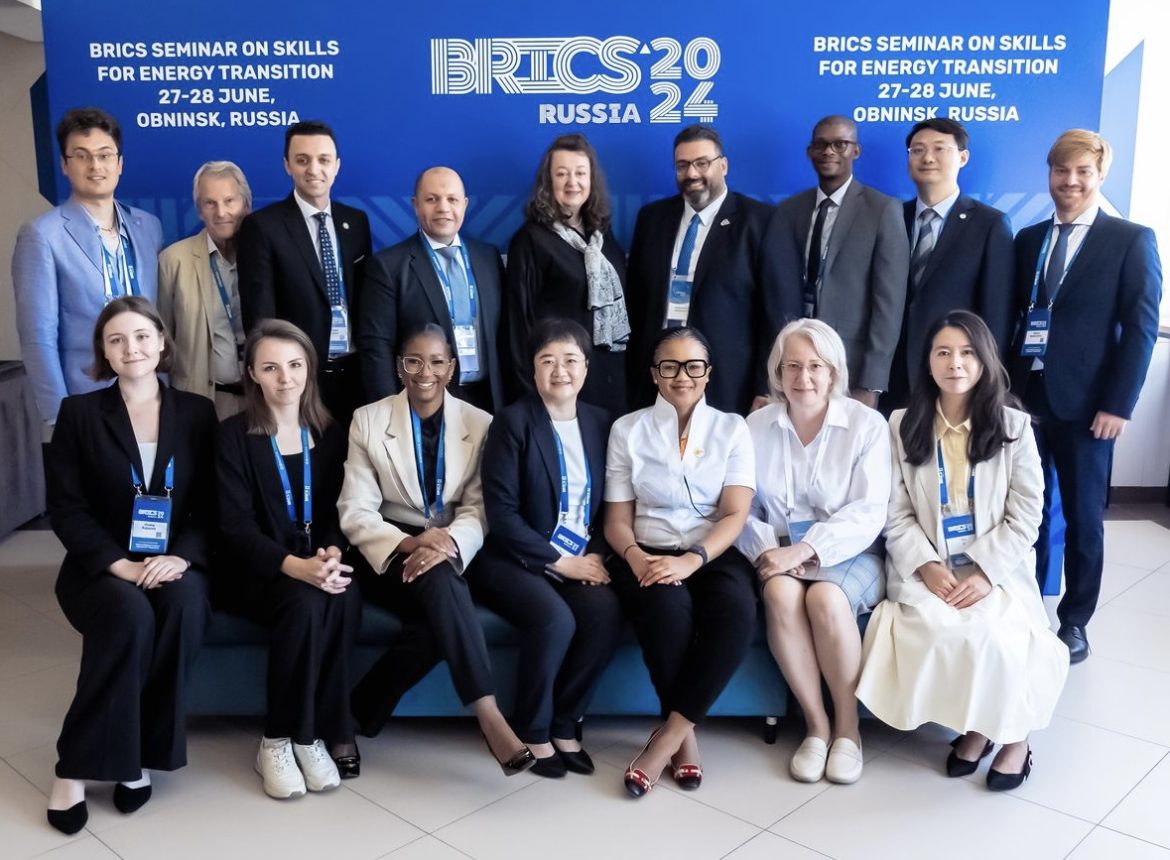African delegates recently engaged in a discussion with BRICS countries on managing human resources for the energy transition. The international seminar took place in Obninsk, Russia, the birthplace of national nuclear power.
More African countries are showing interest in cooperating with BRICS. Initially, South Africa was the only African country in BRICS. However, Egypt and Ethiopia joined in January 2024, expanding the group to BRICS+.
Africa plays a crucial role in BRICS’s global strategy. Defining future relations between BRICS and Africa is now imperative. One key area of cooperation is developing the energy sector labor market.
Delegates from South Africa, Russia, the UAE, Brazil, China, and Egypt met to exchange ideas. The seminar, held in Obninsk, Russia, was supported by the Russian Ministry of Energy and Rosatom.
“BRICS countries have different energy balances and access levels to energy resources. Staff training needs also vary,” said Anastasia Bondarenko, Deputy Minister of Energy of the Russian Federation. “However, BRICS nations share similar goals and challenges in labor market development and staff training. This opens up the potential for extended cooperation. Together, we can achieve significant success.”
Nelisiwe Nhlapo, Project Manager at the South African National Energy Development Institute (SANEDI), stated that BRICS countries lead in the number of workers in all energy sectors. They employ 50% of all workers in the renewable energy sector and 80% in the coal sector.
However, BRICS countries face challenges like aging workforces in traditional energy sectors and difficulties in transferring experience to younger generations. Developing specialized skills among young people is essential. Collaboration in scientific research, standardizing qualifications, and creating exchange programs for students and teachers are crucial.
BRICS delegations presented their national strategies for skills development in the energy sector. The South African delegation highlighted its sectoral education system, which includes over 20 educational institutions to develop specific hard and soft skills.
The UAE delegation outlined key areas of education needed for the energy transition. These include renewable energy, energy efficiency, engineering, digital skills, project management, regulatory frameworks, and public education.
The Egyptian delegation shared the Ministry of Petroleum and Mineral Resources’ programs for mid-level and senior managers. These include leadership development and energy efficiency training programs.
Gulnara Bikkulova, Deputy General Director of the International Initiatives and Partnerships Block of the Rosatom Corporate Academy, shared Russia’s experience in the nuclear industry. With 2.6 million employees, the Russian energy sector has an average employee age of 42 years. Women account for 26% of the workforce.
Rosatom focuses on human resource development by involving youth through 250 Rosatom schools and 21 partner universities. They also address gender balance through the Invisible Force women’s leadership program and technical education for female students.
BRICS cooperation benefits Africa in research, innovation, energy, health, and education. As Africa moves towards sustainable, low-carbon development, BRICS membership offers access to policy and technical expertise to accelerate industrialization and meet Fourth Industrial Revolution goals.
The BRICS and Africa collaboration on energy workforce development highlights a significant step towards sustainable growth. By addressing workforce challenges and enhancing cooperation, both BRICS and African nations aim to build a robust and skilled energy sector.
Source: Energy News Africa



